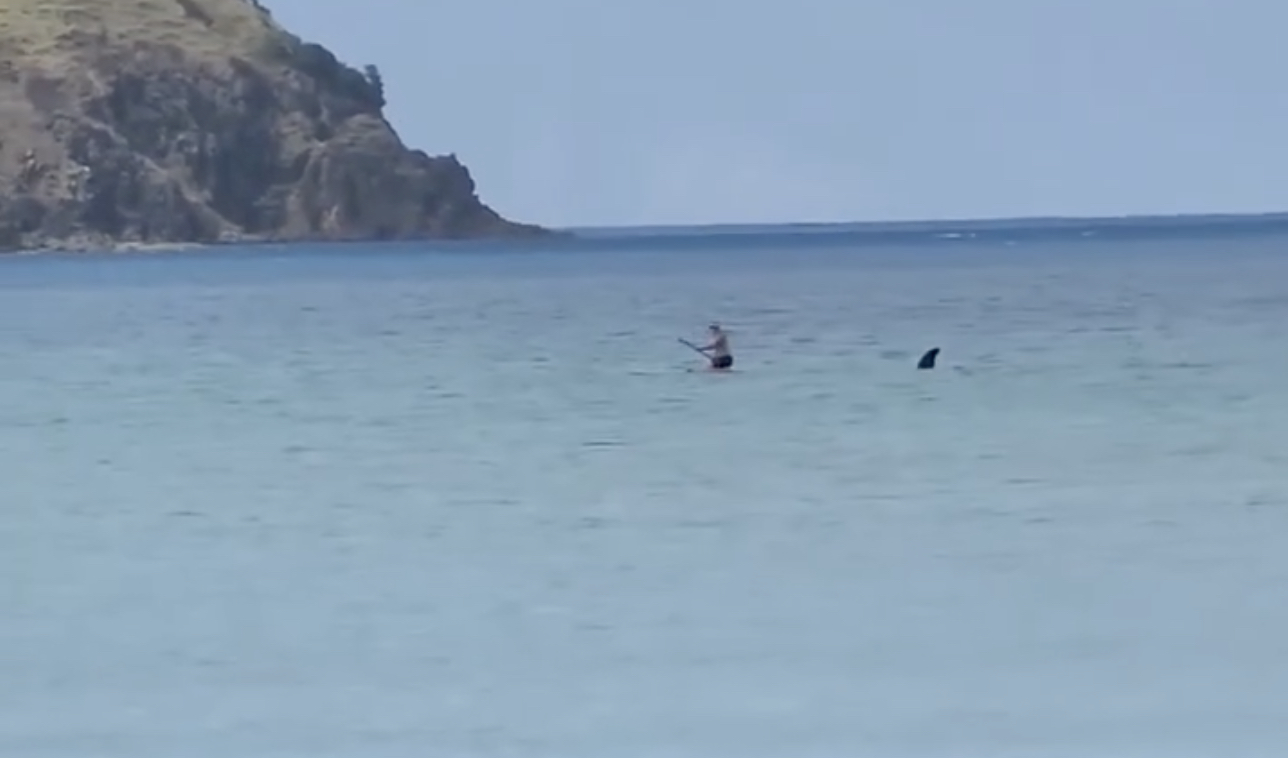‘Terrifying!’ paddle boarder’s close encounter with playful orca, near Great Barrier Island, NZ. Photo / Abigail Florence
In an extraordinary display of wildlife ft. human interaction at Shoal Bay, Great Barrier Island, a paddle boarder had a once-in-a-lifetime encounter with an orca whale.
The remarkable moment was captured in a short video uploaded to the community Facebook page by Abigail Florence. The footage shows the paddle boarder, rapidly paddling on their knees, as the majestic orca first glides alongside and then playfully follows from behind, prompting the paddle boarder to make a cautious retreat to the shore.
The video has since garnered hundreds of likes and dozens of comments, reflecting the community’s awe and maybe a little uneasy excitement.
Comments ranged from the amused “paddle faster” to expressions of amazement, with one user describing it as “the best” and others calling it “so so cool” and “spectacular.”
Sarah Judkins elaborated on the situation, stating, “It was both terrifying and amazing at the same time.”
Orcas, also known as killer whales – essentially killer-of-whales are frequently seen in the waters around Great Barrier Island and the wider Hauraki Gulf.
The magnificent creatures are generally considered safe around humans, often displaying curiosity rather than aggression. However, as with any wild animal, it is crucial for observers to maintain a respectful distance to ensure safety for both the whales and themselves.
In a similar previous encounter Orca researcher Dr Ingrid Visser told Stuff while orcas are powerful apex predators, they are typically non-aggressive towards humans.
“There have been no reports internationally of orcas attacking and killing people,” she says.
“They do kill and eat fish and sharks. But they are also curious and fun loving.”
Encounters like these, though rare, highlight the rich marine life we are privileged to have in NZ waters according to Visser, but she adds it’s important to coexist respectfully and responsibly with these incredible animals.
“Generally, people misinterpret their behaviour, as 99 percent of people are not used to interacting with large marine animals,” says Dr Visser.
People are not allowed to swim with orca or whales under marine mammal rules.
Boats should not move faster than the slowest animal within 300 metres of them, and may not approach within 50 metres.
“Orca haven’t read the the rule book of course and are curious,” says Dr Visser.
“They may come and check out a boat or swimmer.”








